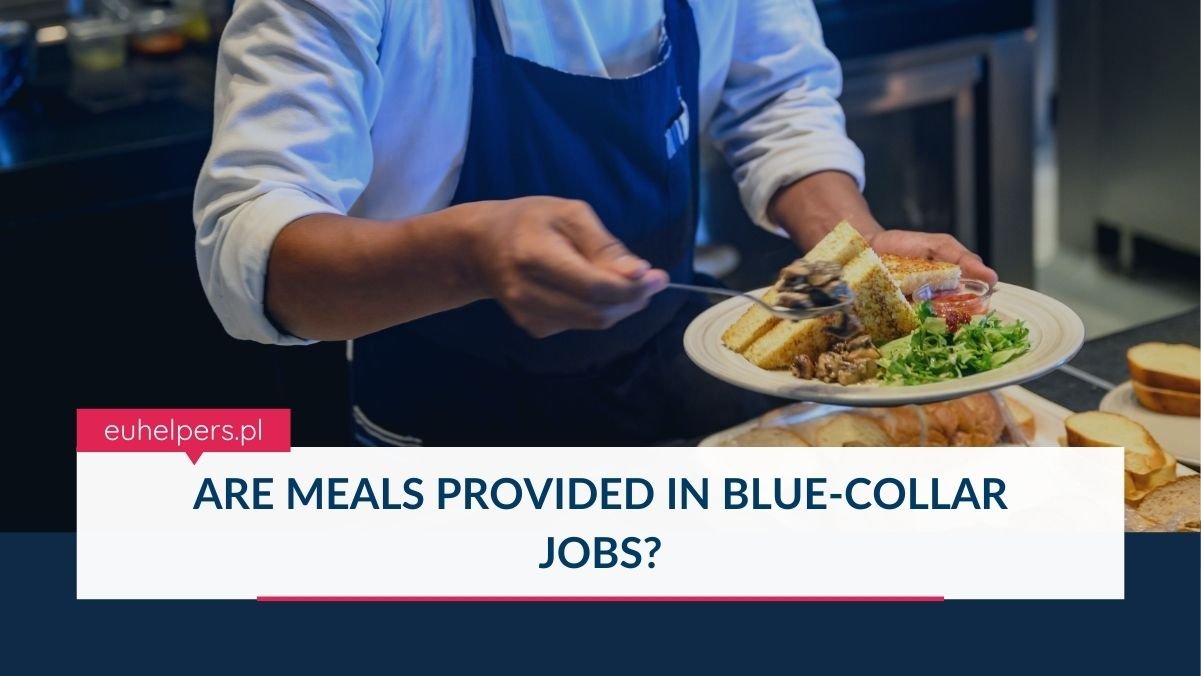
In Europe, blue-collar workers often receive different types of benefits depending on the employer, job sector, and country. One of the most common questions from foreign jobseekers is whether meals are included during work.
Are Meals Provided in Blue-Collar Jobs?
Meals may be provided, but it depends on the employer.
Some companies offer one free meal per day, while others provide meal allowances, canteen access, or no meals at all.
In many blue-collar roles—such as warehouses, factories, hospitality, cleaning, and agriculture—workers may receive:
-
One free hot meal during a shift
-
Free lunches on certain shifts (mainly long shifts)
-
Discounted meals at the company cafeteria
-
Meal vouchers or a monthly meal allowance
-
Full meals only in specific industries such as agriculture or hospitality
However, it is not guaranteed in all European countries, so workers must check their job offer.
When Do Employers Provide Meals?
1. Long Shifts (8–12 hours)
Companies may offer one free meal during long or double shifts.
2. Accommodation-Based Jobs
Some jobs that include company accommodation also include meals (for example, agriculture, hospitality, caregiving).
3. Factory and Warehouse Canteens
Large factories and logistics centers often have canteens with discounted meals.
4. Seasonal Work
Fruit picking, greenhouse work, and hotel seasonal jobs may include meals or meal vouchers.
5. Live-in Roles
Caregivers, housekeeping staff, and some hospitality workers may receive meals as part of their living arrangement.
When Meals May Not Be Provided
-
Standard warehouse jobs
-
Construction roles
-
Manufacturing jobs without canteen facilities
-
Jobs with housing allowance instead of accommodation
-
Shift-based jobs where workers carry their own lunch
In these cases, workers must arrange meals independently.
Countries in Europe Where Meal Benefits Are Common
Meal provisions are more common in:
-
Poland
-
Czechia
-
Hungary
-
Slovakia
-
Romania
-
Croatia
-
Portugal (hospitality roles)
-
Italy and Spain (caregiver roles)
Countries like Germany, the Netherlands, and Denmark mainly offer meal allowances, not free meals.
What to Expect in Your Contract
Before accepting a job, workers should review:
-
Whether meals are provided
-
Number of meals per day
-
If the meal is free or subsidized
-
If meal vouchers are included
-
Whether meals are tied to shift duration
-
Availability of a company canteen
These details should be written in the employment contract or job offer letter.
Benefits of Meal Provision in Blue-Collar Jobs
-
Saves monthly expenses
-
Convenient for long shifts
-
Ensures nutritional food during work
-
Reduces the pressure of cooking daily
-
Helps workers adjust quickly after arriving in Europe
Conclusion
Meals can be provided in blue-collar jobs in Europe, but benefits vary widely. Workers should not assume meals are included unless clearly mentioned. Always check the job offer, contract, and employer policies to understand what is provided and what is not.
If meals are important to you, confirm the details with the employer or recruitment advisor before beginning your visa process.
